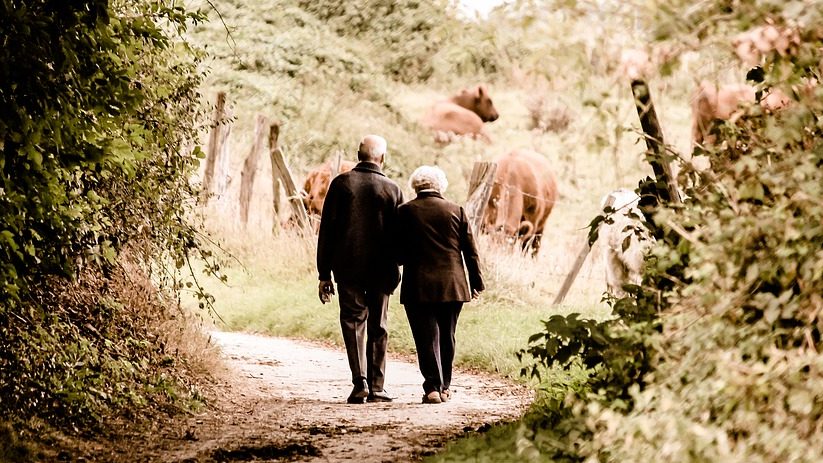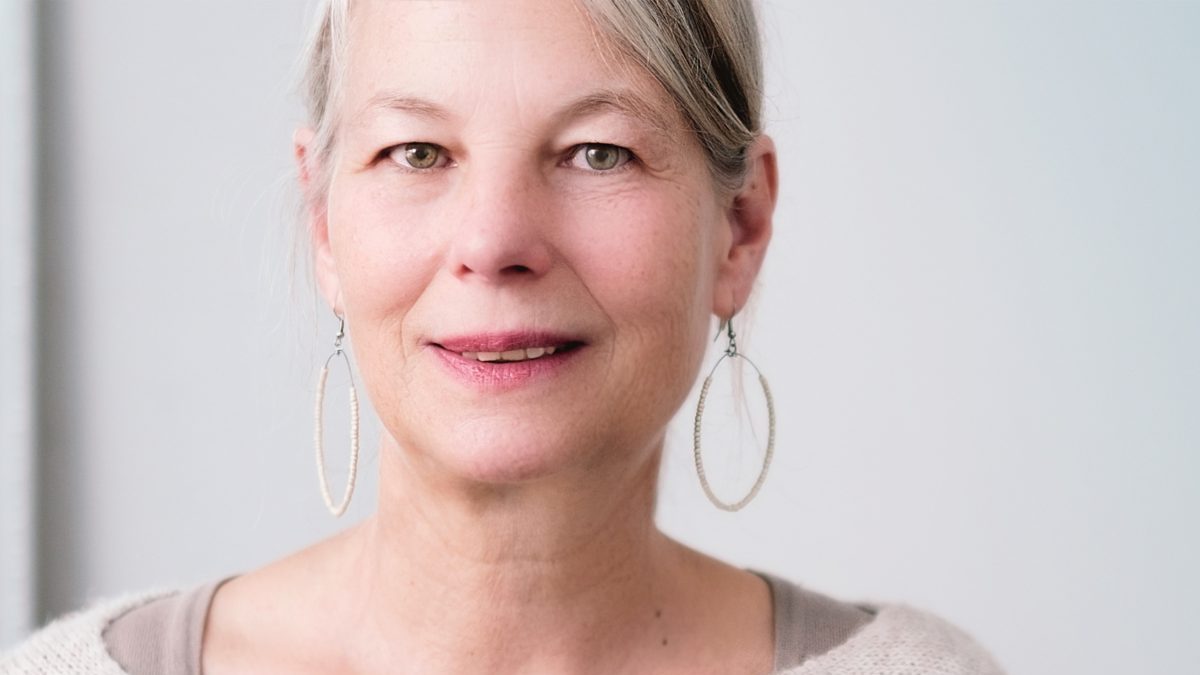It is easy to understand why aging myths have the ability to take hold and become established as “fact” with very little pushback. Aging, after all, is a process that you can only really know when you are living with it, which means that for the first 60 years of a person’s life, aging is largely a nebulous concept. That makes it tough to rebuff and challenge some of the most persistent myths.

However, it is important to challenge these suggestions, using a mix of scientific study and anecdotal evidence, wherever possible. For the vast majority of people, aging is an issue that genuinely scares them. For example, 57% of the millennial generation say they are afraid of getting older – a startlingly high number given that aging is a process that no person has any control over.
In the face of such fear, it is important to examine the myths and misconceptions that surround aging and, in particular, health in later life. An unnecessary amount of worry is being expended over concerns about aging. It is tragic to consider many of these worries are taken from misunderstandings rather than the reality of the aging process.
To try and redress the balance of aging-related information available, below, we’re going to consider some of the most common aging beliefs in an effort to find the reality…
BELIEF: “Memory loss is inevitable.”
One of the biggest fears many people have regarding aging is concerns over memory loss. Most of us have known a friend or relative who suffers from dementia or Alzheimer’s Disease, which can make a big impression on your understanding of old age. If you have witnessed how challenging dementia and Alzheimer’s can be and how these conditions can necessitate a move to the likes of ParcProvence.com in order to maintain the best possible care for the individual, your mind will begin to see this kind of situation as a natural progression; an inevitable part of the aging process that everyone will go through.
This, however, simply isn’t the case. First and foremost, as discussed on NYTimes.com, dementia rates are actually falling. Secondly, it’s important to remember that dementia and Alzheimer’s are illnesses; they are not a natural consequence of aging. These illnesses are not even restricted to older people; dementia, for example, has been diagnosed when people are in their 30s and 40s. While the majority of people who suffer from these conditions do tend to be older, it is vital to understand that getting older does not immediately lead to a loss of memory and cognitive function.
Most promisingly of all, experts believe that there are things you can do to keep your mind active that may help to ensure you do not develop a memory-related illness. If you are particularly concerned about this issue, then you may want to consider following the prevention tips detailed in this great video below…
BELIEF: “Senses degrade and spoil the enjoyment of life.”
Firstly, it is important to acknowledge that your senses – and particularly your hearing and eyesight – are more likely to degrade in later life. Many eye conditions predominantly only affect people over a certain age, and hearing loss is far more likely in people over the age of 65. What’s more, your sense of taste and smell do change during the aging process.
As a result, we can’t conclusively contradict this belief, because it has a basis in scientific fact. However, there are a few important points to note:
- Regular eye and hearing examinations can help control age-related issues and provide solutions for any existing problems.
- While your senses of taste and smell do change, this happens so slowly you are highly unlikely to notice it. You are not going to bite an apple one day and suddenly be unable to taste it; the changes are far more subtle.
So while your senses may change, these issues will either not particularly concern you or can be mitigated by being proactive when managing your health. They certainly won’t “spoil your enjoyment of life”. It’s important to remember that aging isn’t something that is inflicted upon you – you have control, and an ability to influence what happens to you, and the loss of your senses is a great example of this point.
BELIEF: “Getting older means becoming frailer.”
Firstly, it is important we acknowledge a base fact here: yes, getting older can mean that you become frailer. Bone density can be lost over time, and you may experience issues with your joints due to a loss of collagen production.
However – as is becoming the pattern – it is important to acknowledge that you do have an element of control over these areas. Many older people are able to remain fit, healthy, and active well into their 80s and 90s; this is not due to luck, but due to a continued dedication to maintaining their fitness.
When it comes to preventing frailty – or, at least, mitigating the risk – the most significant area to focus on is weight-bearing exercise. Weight-bearing exercise ensures that your bones are constantly being tested, which in turn can keep them from becoming frail. There’s a great list of weight-bearing suggestions at WebMd.com or, if you’d prefer a video, the one below is a good place to start…
BELIEF: “Everyone loses their teeth in old age.”
Along with concerns about memory loss, many of us fear that aging will mean that we lose our teeth. This worry tends to be complicated by the fact that we have all heard that dentures are uncomfortable, and alternative options – such as implants – can be prohibitively expensive.
So, the good news: losing teeth as you age is not inevitable and can be prevented with a strong dedication to oral health and hygiene throughout your life. It’s also important to note that while a large number of people do wear dentures, these are not necessarily full dentures.
Finally, if you feel dental implants may be an area you want to investigate if you do lose your teeth (and remember, that’s a big if), then you may find it reassuring to start saving for such a procedure now. Then, the money is there to be called into action should it become necessary. Hopefully, though, a great oral hygiene regime will prevent any such necessity from coming to pass.
BELIEF: “Older people experience mental health problems.”
When many of us think of the things that make life worth living, it can be difficult to envision engaging with those things in later life. For example, if you love your work, aging may be a worrying prospect as you feel you will have to leave your job, or you worry a loss of mobility would stop you being able to engage with active hobbies such as mountaineering or mountain climbing.
If you anticipate an old age without these things in your life, old age can sound incredibly depressing. The issue is then complicated further by the fact that younger people tend to assume that older adults are incredibly afraid of death. This can lead to the conclusion that mental health in old age means dealing with the painful loss of the things you enjoy and worrying about your mortality on a daily basis – a two-pronged issue that sounds like endless mental torment to most of us.
However, the above horror scenario simply isn’t a reality. First and foremost, we have already discussed how living an active, mentally-engaged life can benefit you in later life. There is no need for you to have to stop working if you do not wish to, and you can engage with active sports for as long as you want – the activity will be good for you. Aging does not mean you have to surrender your usual hobbies and only engage with stereotypically “old” hobbies; we live in a world where people over the age of 90 take part in marathons and regularly publish books – age is no barrier to doing the things you want to do.
Secondly, it is worth noting that older people are far less afraid of dying than younger people expect. In fact, you’re less likely to be afraid of death when you are older than when you are younger.
Finally, if you fear poor mental health in later life, then it is worth noting that studies have shown that people over the age of 60 are the happiest of all the age groups. While there are undeniable challenges to mental health during the aging process, it is important to keep these in perspective and remember that a huge proportion of people are able to embrace their golden years with excitement, happiness, and a fantastic feeling of mental well-being.
In conclusion
The aging process undoubtedly has moments that will challenge and perplex you. However, it is important to remember that – as with health at any other point in your life – you do have an element of control. By maintaining a healthy lifestyle and proactively managing your health concerns, there’s no reason why you won’t be able to enjoy your golden years and make the most of what they have to offer. Aging is inevitable, so it’s important to keep the reality of the process in mind, put the received wisdom to one side, and work to achieve optimal health and happiness in later life.
Contributed Content


